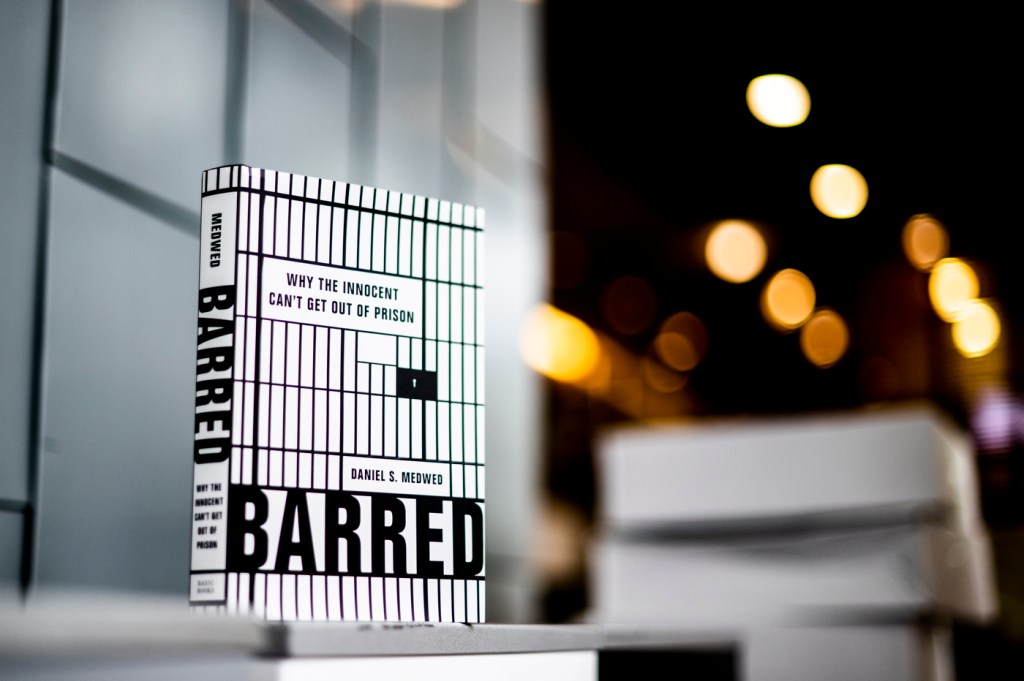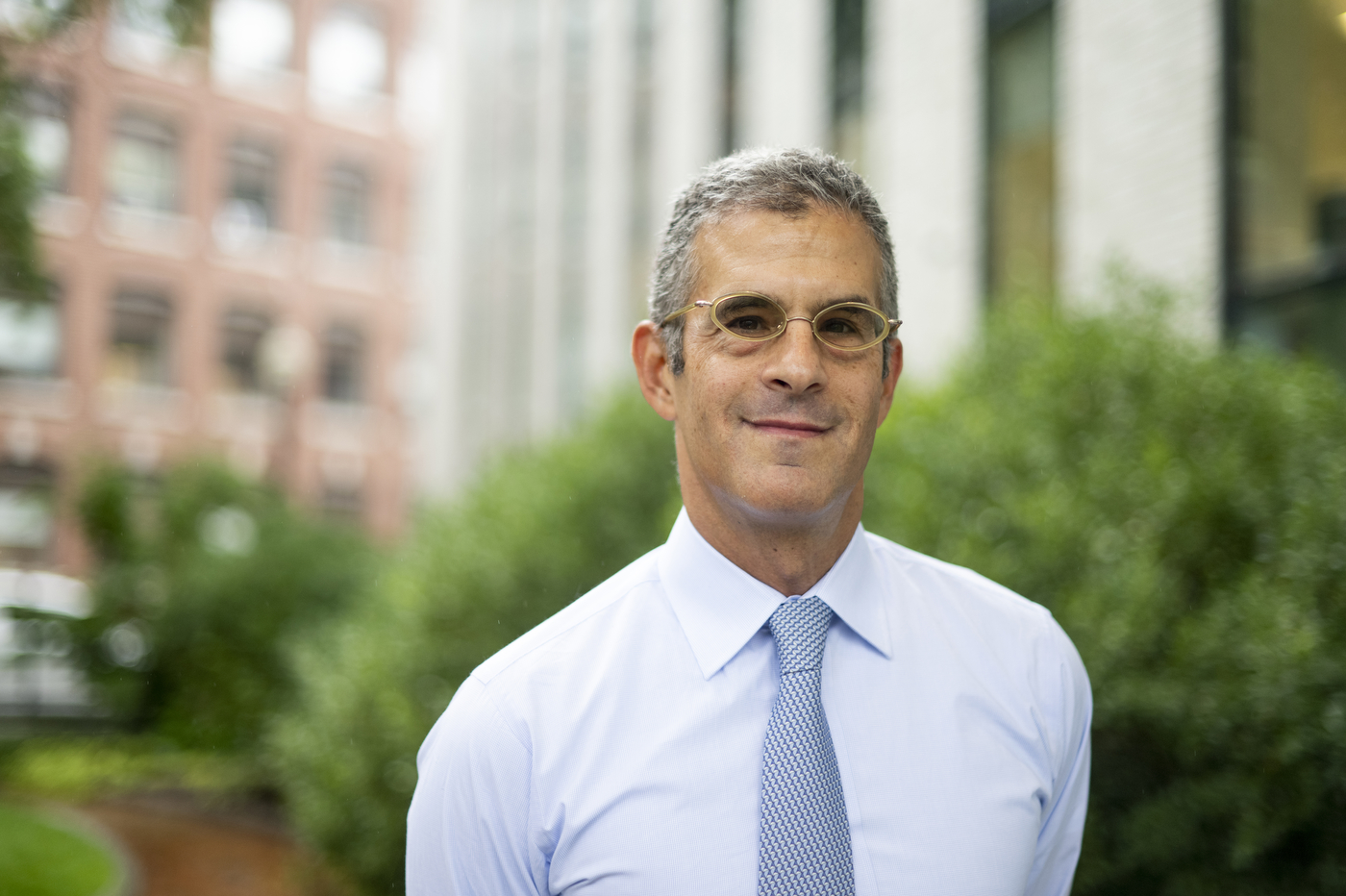Technicalities keep people in prison, says Northeastern professor in new book

The United States legal system can seem maze-like, so complex that people convicted of major crimes can slip through its fingers.
“But the reality that I learned over many years in the trenches,” says Daniel Medwed, Northeastern University distinguished professor of law and criminal justice, is that “technicalities are what keep people in prison.”

Medwed, who served as an associate appellate counsel in the criminal appeals bureau of the Legal Aid Society in New York City and is a founding member of the Innocence Network, says that these technicalities are used to entrap people even when they can reasonably be proven not guilty, whether through new evidence, revelations of judicial malfeasance, or further scholarly investigation.
The public seems to understand that people are sometimes arrested for crimes they didn’t commit, Medwed says, “But not as many people seem to understand why it is so hard to free those prisoners after you’ve uncovered evidence that they’re innocent. So the first objective is education.”
Medwed’s new book, “Barred: Why the Innocent Can’t Get Out of Prison,” provides examples of people that, he argues, scholars can reasonably prove are not guilty, but who remain (or remained for too long) behind bars.
Medwed calls the labyrinthian technicalities of the U.S. criminal justice system “procedural booby traps,” traps that mean “even people with very strong evidentiary claims remain incarcerated.”
One of these traps looks like a process that should benefit those who are not guilty: the appeals process, he says.
But a court appeal is highly limited, Medwed says, and can only address items directly addressed in the original trial.
This means that even new extenuating evidence—like forensic DNA—cannot be used in the appeals process if it was not entered during the first proceeding. (DNA evidence can sometimes be introduced in post-conviction proceedings.)
All an appeal can address are “potential errors that occurred at the trial. Nothing new, nothing outside the record.”
“What’s more, not even all the errors that exist at the trial can be raised on appeal,” Medwed continues.
If a potential error goes unremarked on during the trial (that is, if a lawyer for either side fails to note an objection to a potential error), that issue is not “preserved” and will not be considered for thorough review during an appeal.
With “Barred,” Medwed describes “cases where appellate courts found an error to be ‘harmless.’ They admitted that there was an error, a mistake at trial, but they upheld it on appeal because they said it was a harmless error.”
Nevertheless, he says, “I’ve identified a number of cases where that person was later proven innocent through DNA or some other means.”
There have been about 375 exonerations of previously convicted individuals through DNA evidence, but the first DNA exoneration only occurred in 1989.
Also, Medwed is quick to caution, these DNA exonerations “probably represent the tip of the iceberg.” There are approximately 3,000 other cases, most of them without DNA evidence, where scholars have determined that convicted individuals are not guilty after the fact.
The majority of crimes do not involve any DNA evidence at all.
In addition to telling the story of not guilty individuals kept trapped by technicalities, each of the new book’s chapters presents ideas for potential reforms.
“It’s a combination of micro level and macro level reform proposals,” Medwed says, reforms that include everything from establishing more “innocence commissions” (to continue investigating cases after trials have concluded) to revisions of established legal practice.
He hopes that the book will spark discussion and new thinking among legislators, lawyers, judges and the general public.
Medwed believes that this kind of intellectual cross-pollination is part and parcel with his work at Northeastern. “We don’t believe in exclusivity, that our knowledge should be confined to just the handful of students who get in. Knowledge is something that should be shared and discussed and debated.”
He continues, “I am very much a person who believes in the Northeastern model of experiential learning and engaging with the world. So the idea is that maybe some states will implement one or more of the reforms that I suggest in this book.”
“Barred” goes on sale on Sept. 20, with an official book launch the following day, Sept. 21, at Grub Street in Boston, Massachusetts. The book is a Next Big Ideas Club September 2022 nominee and has already been named one of fall’s best books by Bloomberg.
“The hallmark of a civilized society is the extent to which we protect our most reviled,” Medwed says. “The idea of being innocent and convicted of a crime strikes me as one of the greatest horrors you could experience.”
“Everyone deserves a zealous and competent advocate. The burden is on the government to prove that you’re guilty.”
For media inquiries, please contact media@northeastern.edu.






